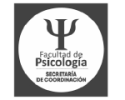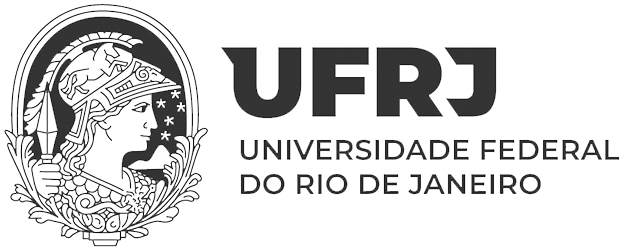ℹ️ Si quieres leer este contenido en español, haz clic en este enlace.
Executive functions are the central axis of human behaviour, encompassing cognitive skills essential for planning, organising, problem-solving, maintaining attention, and controlling actions. For neuropsychologists and mental health professionals, these functions are vital for daily and adaptive cognitive flexibility therefore it is key to be able to properly assess its state and plan an adapted intervention.
What are executive functions?
Executive functions are defined as a set of fundamental cognitive skills that allow us to plan, organise, solve problems, maintain attention, and control our actions. These functions are essential for effective executive functioning in daily life and in situations requiring adaptation and cognitive flexibility. Some specific skills associated with executive functions include:
- Planning: Setting goals, developing strategies, and organising actions.
- Inhibition: Controlling impulses and resisting distractions.
- Cognitive Flexibility: Efficiently switching tasks or strategies.
- Working Memory: Temporarily holding and manipulating relevant information.
- Sustained Attention: Maintaining concentration over time.
- Problem-Solving: Identifying, analysing, and resolving problems.
- Emotional Control: Managing emotions and stress constructively.
- Language Regulation: Organising speech and accessing specific language functions.
Executive functions are fundamental for success in various aspects of life, including academic, professional, social, and emotional domains. Poor executive functioning can manifest in difficulties following instructions, completing tasks, controlling impulsive behaviour, solving problems, and adapting to new situations.
Assessment of Executive Functions
Executive functions develop throughout childhood and adolescence, peaking in early adulthood. They can be affected by brain injuries, neurological disorders, developmental disorders, and medical or psychiatric conditions. Early assessment and intervention are crucial. Common assessment tools and approaches include:
- Clinical Interview: Gathering comprehensive medical history and cognitive, behavioural, and daily functioning information from the patient and their family.
- Questionnaires and Scales: Assessing various aspects of executive functions such as attention, working memory, cognitive flexibility, and inhibition.
- Neuropsychological Tests: Specific tasks to measure different executive functions like verbal fluency, cognitive flexibility, planning, and problem-solving.
- Modern Technology: Virtual reality and neuropsychological assessment applications provide precise and objective evaluation of executive functions in simulated real-life situations. Nesplora offers the “Ice Cream” test for specific executive function assessments through virtual reality.
- Direct Observation: Evaluating executive functions through observing the patient’s approach to daily tasks such as scheduling, activity planning, and problem-solving.
Virtual Reality: Ice Cream and Executive Functions
The Nesplora Executive Functions – Ice Cream test is designed to assess executive functions from adolescence onward, offering in-depth insight into cognitive development and status throughout life. Its psychometric properties, including internal consistency and convergent validity, support its clinical and research utility. Ice Cream can be used with individuals aged eight to eighty, demonstrating high reliability and validity through significant correlations with other executive function measures.
The internal consistency of Ice Cream is supported by Cronbach’s alpha coefficient, indicating high reliability of the scores obtained on various test items. This means that Ice Cream consistently measures skills related to executive functions, providing reliable results across multiple assessments. Additionally, the convergent validity of Ice Cream has been confirmed through its significant correlation with other executive function measures, such as the Wisconsin Card Sorting Test (WCST).
Advances in Executive Function Research
Understanding executive functions involves considering age and cultural influences on their development and functionality. A normative study published in Frontiers in Psychology on the “Ice Cream” tool examines executive function development across childhood, adolescence, and adulthood, revealing interesting patterns:
This study examined the development of executive functions throughout childhood, adolescence, and adulthood. The results revealed interesting patterns of change and stability in various executive skills, such as cognitive flexibility, inhibition, and working memory.
- Regarding cognitive flexibility, a gradual increase in development was observed during childhood and adolescence, followed by stabilization in adulthood. This finding suggests that the ability to adapt to changing situations improves with experience and brain maturation, peaking in adulthood.
- On the other hand, inhibition showed a more complex development pattern, with fluctuations in performance across different developmental stages. Significant improvements in inhibitory capacity were observed during childhood and adolescence, followed by stabilization in adulthood. However, significant individual differences were found in this process, suggesting that factors such as environment and genetics can influence the development of this skill.
- Working memory demonstrated a consistent development pattern throughout life, with gradual improvements in capacity as individuals age. This finding highlights the importance of working memory as a fundamental executive function underlying numerous complex cognitive tasks.
You might also find this interesting…
You may not be a health professional, but you suspect that you or someone in your environment may have attention or anxiety problems. In that case, we recommend that you look here for your nearest specialist in our international network of professionals using Nesplora.
You can write to customers@nesplora.com with any questions and we will get back to you.
Follow us on Facebook, Twitter, Instagram, LinkedIn and YouTube to stay tuned for more content like this.












